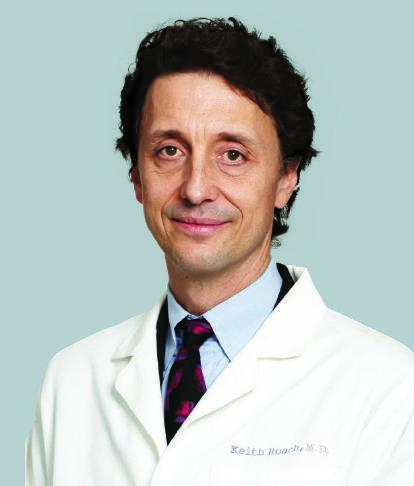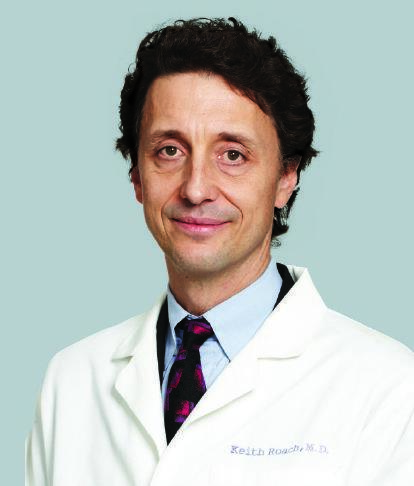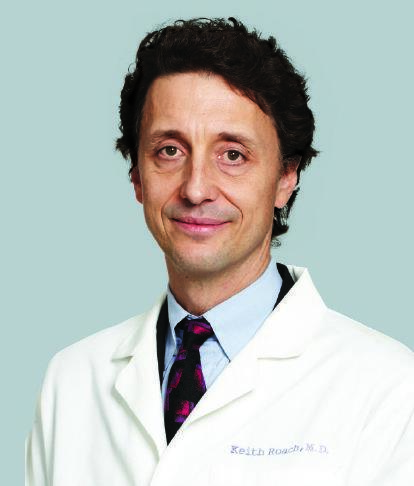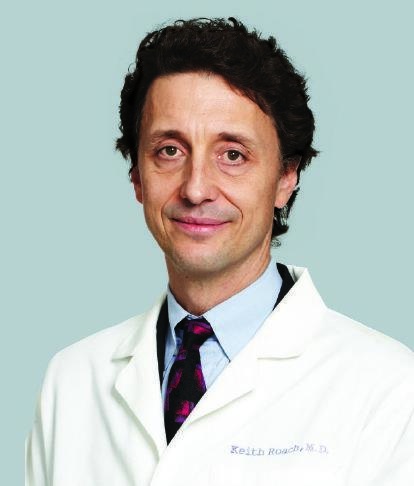
The power of the keto diet; adopt a fun brain-loving lifestyle
Q: I have Type 2 diabetes. My doctor tells me that I can improve my health if I cut out carbs and eat a keto diet.

Q: I have Type 2 diabetes. My doctor tells me that I can improve my health if I cut out carbs and eat a keto diet.

Q: I have been pretty neglectful when it comes to doing what I should to stay strong and focused as I age. I am 72 now.

DEAR DR. ROACH: I am 5 feet, 1 inch tall, weigh 200 pounds, and have found it next to impossible to lose weight, even though I'm active.

DEAR DR. ROACH: In a recent column that touched on taking laxatives daily, you mentioned a sugar called lactulose that you recommend for constipation.

Q: I'm told that I'm iron deficient but not anemic and need to increase my iron intake and take a supplement. Which supplement is best and what foods should I eat if I don't want to eat liver? -- Josie R., Evanston, IllinoisA: What's called absolute iron deficiency affects 11% of U.S.

DEAR DR. ROACH: I am a 62-year-old female who has focal segmental glomerulosclerosis (FSGS) that was diagnosed in 2001.

Q: I'm determined to lose weight -- and while I've heard a million pieces of advice, I don't really know how to get started, short of going hungry. Can you help me? -- Kelly P., Portland, OregonA: Making the commitment to yourself to succeed at losing weight is a huge first step.

DEAR DR. ROACH: Are there any studies that show who might be more seriously affected by COVID, whether it's based on risk factors such as genetics, vitamin deficiencies, etc.? -- F.F.ANSWER: There are many disease conditions that put a person at risk for a severe illness if they get infected with the virus that causes COVID.

Q: I'm 63 and have been diagnosed with atrial fibrillation. I wonder what you know about medical care and self-care for the condition.

Q: I don't get more than about five-and-a-half hours of sleep a night during the week, but my wife says I can't hang out in bed on the weekends because we have too much to do. Can you give me some ammunition -- I need the rest! -- Greg T., Tallahassee, FloridaA: Your situation is pretty common. Around a third of adults get less than the recommended seven hours of sleep a night. And we have two things to say about your situation. One: Let's explore ways you can get more sleep on weeknights -- it is an essential part of living a healthier, happier life. Two: Research shows your instinct to get extra sleep on the weekends is just what the doctor ordered. A study presented at the European Society of Cardiology's meeting recently looked at data on around 19,000 sleep-deprived adults and found that those who had the most catch-up sleep on weekends lowered their risk of developing heart disease by 20%. So, Greg, let your wife in on this good news.One other thing: Sleep deprivation causes more than heart woes. Physical and mental health problems, injuries, loss of productivity, and even a greater likelihood of death are associated with chronic lack of sleep.That brings us back to point No. 1: ways to help you get more sleep on weeknights. Even if you work 10-plus hours a day, you have control over your time between getting home and going to bed. You may pitch in around the house, but we're betting you're also spending too much time on screens. You may also be doing things like overeating late at night or exercising in the evenings that make it hard to fall asleep at a reasonable hour. We recommend you get into bed seven to eight hours before you have to get up, lights off, no digital devices or screens, and keep it cool, dark and quiet. Then practice 10 minutes of mindful meditation ... and ZZZ.* * *Q: I'm worried that I have my family's risk for heart disease. I'm just 32, but I want to know if I'm headed for trouble and what to do about it. -- Janelle H., Fort Meyers, FloridaA: There are advances in predicting women's risk for heart disease that make it possible for you to know the likelihood of having a heart attack or stroke decades before it happens (and then make changes that can prevent it!). Researchers recently used three readily available, inexpensive blood tests -- for levels of lousy LDL cholesterol, high-sensitivity C-reactive protein (CRP), and lipoprotein(a), or LP(a) -- to predict a woman's risk for heart disease over the next 30 years. CRP is a biomarker for general levels of inflammation and LP(a) is a marker for a genetic risk for heart disease.They found that women with a CRP level of 5.18 milligrams or higher were 70% more likely to have a major heart event compared to those with the lowest level and those with LDL above 151 g/dL and an LP(a), above 44 mg/dL, had increased risks of 36% and 33%, respectively. But having all three of those biomarkers at a high level -- wow! -- that increased a woman's risk for coronary heart disease and stroke by 300%.At Dr. Mike's Cleveland Clinic, they regularly use the three tests to evaluate a woman's cardiovascular risks. We bet you can get your doctor to give it a try. Then when you know how your heart health is looking, you can take steps to counter your risks. In addition to any medication your doctor may recommend, you can reduce your risk of cardiovascular disease by 80% if you get regular physical activity (at least 150-300 minutes a week), adopt a plant-based diet free of heavily processed foods, added sugars, and red and processed meats, and don't smoke anything, according to a 2019 study in the American Journal of Lifestyle Medicine. For more info, check out "Support Heart Health with These 4 Doctor-Approved Habits" at iHerb.com/blog.* * *Dr. Mike Roizen is the founder of www.longevityplaybook.com, and Dr. Mehmet Oz is global advisor to www.iHerb.com, the world's leading online health store. Roizen and Oz are chief wellness officer emeritus at Cleveland Clinic and professor emeritus at Columbia University, respectively. Together they have written 11 New York Times bestsellers (four No. 1's). (c)2024 Michael Roizen, M.D. Distributed by King Features Syndicate, Inc.